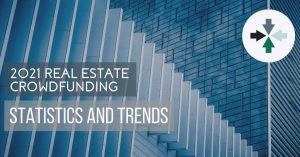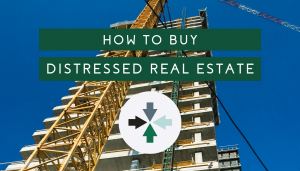The Pandemic’s Impact on the Housing Market
The coronavirus pandemic has had varied impacts on the U.S. housing market. Some buyers, concerned over growing economic uncertainty, will inevitably sit on the sidelines. Others are seeing this as an opportunity to buy real estate, particularly because economic fundamentals were so strong heading into this crisis. Those who believe coronavirus caused a momentary economic blip are going full steam ahead with investments. Those who think the coronavirus will have lingering, long-term impacts on the economy are more hesitant.
For those looking to invest in housing, whether single-family homes or multifamily properties, there’s reason to be optimistic about the housing market. The pandemic has not caused widespread defaults or foreclosures to date. This is likely due to the federal government’s stimulus package, plus several city and state regulations that have put a moratorium on evictions and foreclosures during the crisis (more on this below). Nevertheless, the housing market remains strong.
Real estate experts expect it to take another few months to fully understand the pandemic’s impact on the housing market, but to date, defaults have been few and far between – a good sign for investors. Rent collections remain strong across multifamily property types (Class A, B and C alike) and in markets across the country. Multifamily continues to be one of the most resilient asset classes within the commercial real estate sector.
The situation is similar as it pertains to residential housing. Listing activity slowed in March and April and stay at home orders made it difficult to show properties during this time. But into May and June, activity is picking up again, which is indicative of pent up demand. So far, single-family home prices have remained stable in most markets.
Who is Investing in Real Estate in 2020?
The housing market has remained strong for several years, and as such, there is pent up demand from all kinds of buyers. While most associate Baby Boomers and Gen X with real estate investing, there’s been a recent shift to Millennials looking to invest in real estate.
Millennials, having seen their parents’ retirement accounts ravaged by the last recession, are increasingly interested in alternative investments like commercial real estate. In addition to buying their own homes, which Millennials see as an effective tool for building equity, more Millennials are investing in their own multifamily properties, REITs, and crowdfunded investments in lieu of investing solely in their 401k.
Where is the Real Estate Market Still Thriving?
Despite the coronavirus pandemic, the real estate market is still thriving across the United States. Certain geographies are performing better among certain types of investors than others. Primary markets like New York and Los Angeles will continue to draw institutional investors and high-net worth individuals. During periods of economic uncertainty, many investors opt to “trade up and trade out” of secondary and tertiary markets and redeploying that capital into better-located assets in primary markets.
Conversely, primary markets remain overheated. As investors trade out of secondary and tertiary markets, prices in these areas will come down, creating opportunities for non-institutional investors in smaller, up-and-coming cities like Austin, Nashville, Seattle and Orlando. Sun Belt cities, in particular, are starting to draw attention from real estate investors at every scale.
Lowered Mortgage Rates Due to Coronavirus
Almost as soon as the national economy started to shut down in response to the coronavirus pandemic, the Federal Reserve Bank slashed interest rates. Doing so ensured that mortgage rates, which were already still hovering close to record lows, would stay extraordinarily low for the foreseeable future. Lower interest rates, in turn, increases an investor’s purchasing power.
Initially, some feared lenders would retreat as a result of the Covid-induced recession. But in practice, what we’re seeing is that banks are actually well positioned to weather this economic downturn. Unlike the last recession, which was a housing crisis brought on by a lending crisis, this recession has been caused by a global health pandemic. The underlying economy remains strong. Banks have plenty of capital on hand to lend, and they plan to keep doing so. In other words, now is a great time for an investor to lock in rock bottom interest rates on a new commercial real estate mortgage. Existing investors will also want to consider refinancing, in part or their entire portfolio, to take advantage of today’s exceptionally low mortgage rates.
The one down side of this is the risk premium that banks are building into their underwriting. Even though rates are low, banks are adding upwards of 200 to 300 basis points to loan pricing to accommodate the concerns they continue to harbor about how borrowers will weather the Covid storm.
Supply at a Record Low in 2020
Activity in the U.S. housing market came crashing to a halt in March and remained that way through April. Buyers sat on edge waiting to see whether the threat of coronavirus was real, and if so, what impacts it would have on the American economy. Many wondered whether they’d have a job the next morning. Now that several weeks have passed, Americans are feeling confident about the U.S. housing market yet again. More than 41% of homes faced a bidding war in the four weeks ending May 10th, according to homebuying website Redfin – up from just 9% in January. This is indicative of the pent-up demand for real estate. Coronavirus or not, supply remains at record lows, and people are eager to buy. With such little inventory on the market, it’s no wonder we’re seeing competition back with a fury.
Good Deals for Cash Buyers
Although the lending markets are still active, cash buyers continue to have the upper hand. The Covid crisis is still playing itself out, and loans can take upwards of 60+ days to close, especially when dealing with larger commercial properties. Appraisals and other due diligence simply take more time during the coronavirus era.
As a result, cash buyers remain the most competitive and are finding great deals in the marketplace. Some sellers are willing to take a lower sale price in lieu of an all-cash deal to remove any financing uncertainty. A second or third surge in Covid cases could cause a retreat in lending, so sellers looking to move quickly are drawn to all-cash buyers to reduce this risk.
“Subject To” Investments
One trend we’re starting to see amid the coronavirus pandemic is more people buying “subject to” investments. This form of investment usually takes place in one of two situations: the first is when the seller needs to unload a property quickly and cannot wait for the buyer to go through a thorough due diligence and financing process. The second situation typically occurs when a buyer is eager to close on a property but cannot lock in favorable financing terms – something that is becoming more common as lenders pull back amid recent economic uncertainty.
With “subject to” investments, the buyer agrees to purchase the property under certain conditions (e.g., for a certain price and by a certain date), subject to the buyer taking on the seller’s existing debt. This buys the investor time to get their own loan. In the meantime, the mortgage remains in the seller’s name, but the buyer takes on the obligation for making those mortgage payments each month (and in turn, collects all revenue associated with the property).
Other subject to situations are beginning to emerge. In some cases, landlords are facing the bankruptcy of major tenants and yet want to either provide leases to new tenant or divest of properties altogether. In these cases, buyers and sellers or landlords and prospective lessees, may come to terms agreeable to both sides subject to the existing owner resolving the bankruptcy issues satisfactorily. We’re seeing this become more frequent and likely it will continue particularly in the retail and hotel sectors.
Are you ready to take the plunge into real estate investment? Let Gower Crowd show you how.
Multi-Family Investing Complicated
The multifamily landscape is more complicated as of late, with many cities and states implementing policies that restrict a landlord’s ability to evict tenants for cause such as nonpayment of rent. In places like California, Massachusetts and New York, sweeping legislation has paused both evictions and foreclosures for up to six months, or 45 days beyond the day the states’ respective COVID-19 state of emergencies are lifted, whichever arrives first.
In Massachusetts, for example, landlords cannot terminate tenancy or send any notice demanding that a tenant vacate the premises. Massachusetts courts cannot hear eviction cases or hear judgments while the provisions are in effect, nor can sheriffs carry out executions for possession. Massachusetts Governor Charlie Baker tried to provide some relief to landlords – the state now requires mortgagees to grant forbearances to any property owner impacted by the coronavirus-related financial fallout – but most landlords are still on edge, feeling the legislation simply goes too far.
So what does this mean in practice?
Essentially, tenants can opt out of paying their rent (whether they can afford to pay it or not), and for the time being, landlords have little recourse. This disruption in cash flow can be highly problematic for investors who are highly levered and rely on rent payments to cover their monthly debt service.
Real Estate vs. Stock Market: COVID-19 Risks
In the wake of widespread economic shutdowns and COVID-induced mass layoffs, the stock market plunged. The sheer uncertainty associated with the virus caused a selloff among investors looking to keep their powder dry. Individuals saw their retirement accounts slashed, sometimes by 25-30% or more.
Real estate has fared much better thus far. There is little correlation between the stock market and commercial real estate market, which bodes well for real estate investors looking to weather this latest recession. Home prices are proving to be durable because even when there’s an economic contraction, people still need somewhere to live – keeping demand for rental housing, in particular, high, if not higher than pre-COVID days. Multifamily housing is considered one of the least volatile asset classes.
For those concerned about either the short- or long-term impacts of the pandemic, investing in real estate is a relative safe haven compared to investing in the stock market.
Conclusion
It remains to be seen how the coronavirus pandemic will impact the housing market. To date, the impacts have been limited. This could change, particularly if there’s a retreat in lending. But most investors continue to be bullish on the U.S. housing market, with good reason. Evidence of strong rent collections, few defaults, limited inventory, and historically low interest rates will continue to bolster the industry.
Experts are anticipating, or at least hopeful, that any widespread recession will be momentary in nature. Some are predicting a ‘V’-shaped rebound, especially now that stay-at-home orders are being lifted (at least, to some degree) in most U.S. states. Others predicting a ‘K’-shaped recovery, where some sectors recover quickly, and others continue into demise. We’ll continue to monitor how coronavirus is impacting the housing market and will keep readers informed accordingly.


